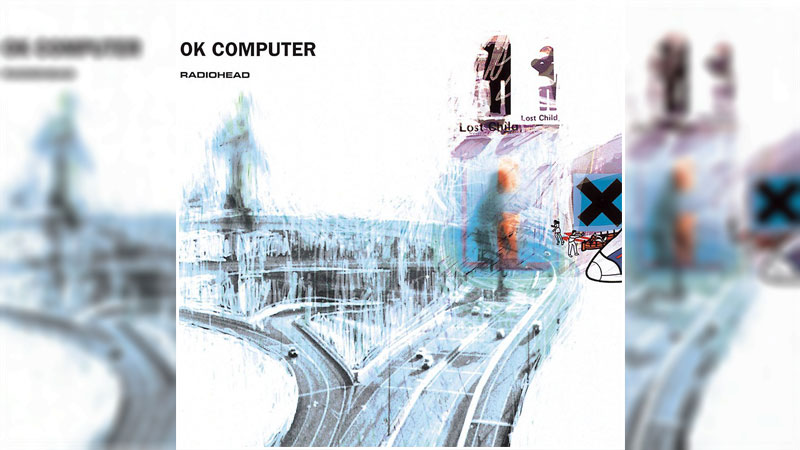Music (Re)discovery: A Millennial reviews Radiohead’s OK Computer
Radiohead’s OK Computer turns 20 so we asked a millennial to listen to the album as if it were new. ” I’m taking for granted so much of what I’m hearing because it’s 2017 and I’m accustomed to the juxtaposition of digital and non-synthesized sounds in art rock.”

How would a millennial react to hearing a 20-year-old album like it’s something brand new? We believe that music discovery isn’t just about up-and-comers—new music is any music that’s new to you—so we decided to find out. Today is the anniversary of Radiohead’s OK Computer, released June 16, 1997. Here’s what she said.
I’m kind of embarrassed to write this piece. I have no legitimate excuse for having waited twenty years to listen to Radiohead’s OK Computer. I’m not some teenager taking my first deep dive into my cool older brother’s music collection. I’m a 28-year-old woman who had every opportunity to get into Radiohead in high school, or in college, or at any point in the past twenty years. My best friend in high school, Jeana, loved Radiohead! She wanted to marry Thom Yorke! She loaned me OK Computer! I can still picture the CD sitting on the desk in the computer room in my parents’ basement (“computer rooms” were a thing in the ‘90s, I promise), waiting to be listened to, waiting in vain (for months! Possibly years!) because I was too much of a nerdy theatre kid to actually listen to new music. And yet, nearly twenty years later, here I am finally listening to this album. What was my deal? And why did Jeana put up with me?
When the album begins, I’m surprised to find that I recognize Airbag, the first song. This gives me hope. I must know it from the mix CD Jeana made me in eighth grade in an effort to help me to become at least a little bit cool, but I have a sneaking and cynical suspicion that I actually know it from a commercial. “I thought this song was by U2,” I find myself thinking, realizing that I actually have no idea what U2 sounds like. “I always thought Radiohead sounded more like Nine Inch Nails.” I don’t know what Nine Inch Nails sound like, either. Again, I wonder, what is my deal? Why did I spend the early 2000s listening exclusively to show tunes?
Paranoid Android begins, and I chuckle self-congratulatorily at the Douglas Adams reference, proud to get something. Like much of OK Computer, I’m surprised by the way the song is simultaneously so ’90s and so thoroughly of the twenty-first century. The opening guitar phrase is conspicuously of its time, to the point where it feels like it could be part of an Alanis Morissette or Nirvana song, but the track quickly surprises with the intricacy of Yorke’s vocals and the abundance of musical influences at play—from a grunge guitar to intricate choral harmonies.
As I listen to OK Computer, I realize that I’m barely noticing the complex interplay of classic rock instrumentation, lush symphonic orchestrations and computer-generated sounds. I’m taking for granted so much of what I’m hearing because it’s 2017 and I’m accustomed to the juxtaposition of digital and non-synthesized sounds in art rock. It’s hard for me to imagine how innovative this sound must have been in 1997 and how completely it’s influenced the twenty-first-century artists that I find myself comparing it to.
With the next few tracks, I start to discern the album’s anti-capitalist themes. In Airbag, Yorke sings about being shocked awake from a life lived in a stupor, born again in the wake of a near-fatal car crash. In the songs that follow, Yorke further explores the sleep-walking existence he emerges from in Airbag, from the suffocatingly quiet life described in No Surprises to the fast-moving sojourners in The Tourist. He rails against so-called trickle-down economics and the International Monetary Fund in Electioneering and lists the cold, depressing aphorisms of near-millennial Western thought in the eerily synthesized Fitter Happier. Whether responding to the ways we’ve been numbed and pacified by technology or criticizing the government, OK Computer seems to rail against late-stage capitalism and the threat of technology in a way that seems almost precocious for 1997. Oh, Radiohead. You had no idea how terrifying late-capitalism would get, how scarily mind-numbing the technology would soon become. Were we already nothing more than “a pig in a cage on antibiotics” in 1997, I wonder? If that’s what we were then, what are we now?
As the album progresses, I recognize a handful of melodies from their reinterpretation as player piano refrains on Westworld, and find myself wishing I’d heard the album first so I could have delighted at the references upon hearing them. Of course, I know Exit Music (For a Film) from Baz Luhrmann’s Romeo + Juliet—I was a theatre kid, after all, and I cried over Leo and Claire to Yorke’s plaintive vocals with the rest of my generation—but I’m shocked by how seductive the music I don’t know is.
Yorke’s wide vocal range and uniquely sweet upper register are heart-rending in places, particularly when he sings in counterpoint with another vocalist. The richness of the orchestrations, particularly in Climbing Up The Walls, is so beautiful and, when paired with the starkness of Radiohead’s lyrics, devastating. OK Computer reminds me of the best of what I know of ’90s music, of Bjork and Elvis Costello and R.E.M., and I find myself wondering who influenced whom. How did that sound grow up? Mostly, I’m shocked by how thoroughly the ideas packed into this album resonate with me now, in this dark moment of the soul of Western civilization. I often feel like I’m sleepwalking through my life. I find myself wondering if I need the shock of an airbag saving my life in order to be “born again,” as Yorke sings.
After listening to the album for the first time, I find myself listening to The Tourist an additional five times that night. Something about that chime. Even a day later, I can’t turn off Yorke’s voice in my head, chastising me “idiot, slow down.”
I regret leaving OK Computer sitting shiny in its jewel case on that old Formica desk for the majority of 2002. It would have made a fine soundtrack to my teenage angst and my Bush-era rage, and who knows, it might have informed the direction I would have taken. Better late than never, I suppose. I guess I’d better call Jeana and thank her for the fifteen-year-old music recommendation.
